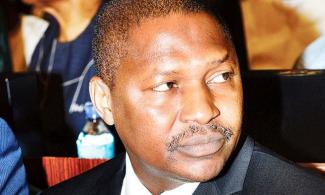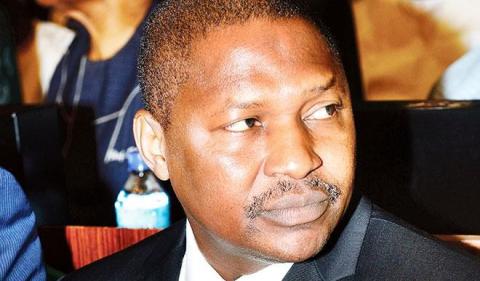
According to a press statement released on Tuesday, 1670 suspects currently in detention at Kainji Detention Facility will be tried or placed into deradicalization programs.
The Attorney General of the Federation (AGF) and Minister of Justice, Abubakar Malami, will commence the trial of suspected Boko Haram terrorists on October 7, 2017.
According to a press statement released on Tuesday, 1670 suspects currently in detention at Kainji Detention Facility will be tried or placed into deradicalization programs. After the Kainji detainees are tried, detainees from Giwa Barracks, Maiduguri will be tried.
In preparation for the trial, the AGF has approved a list of prosecutors handling the cases, while the Legal Aid Council has similarly released a list of defense counsels who will represent the suspects.
Four judges have been assigned to the cases.
The press release, signed by the AGF’s special adviser on media and publicity, Salihu Othman Isah, identified some challenges in the upcoming trial. Among them are poorly investigated case files, over reliance on confession based evidence as opposed to forensic evidence, lack of cooperation between investigators and prosecutors, inadequate logistical facilities to transport defendants from detention facilities to courts, inadequate security for counsels handling cases, and converting military intelligence to admissible evidence.
According to Mr. Isah, there are currently 33 ongoing trials held at various Federal High Courts. Thirteen cases have been concluded with nine convictions, while 116 charges filed are awaiting trial in Kainji. He also disclosed that 220 detainees have been recommended to be released or placed in deradicalization programs due to lack of evidence against them.
Mr. Isah explained that four types of Boko Haram suspects detained at Kainji facilities:
- Suspects without sufficient evidence to charge them to court, and who will therefore be released and entered into deradicalization/rehabilitation programs;
- Suspects who have already had charges filed against them and may be willing to plead guilty;
- Suspects whose case files require further investigation or have not yet been investigated at all and therefore “do not have case files that will warrant the Honorable Attorney General of the Federation to form any opinion in respect of their case”;
- Suspects whose cases were found to be prima facie and “may be willing to opt for a full trial.”
